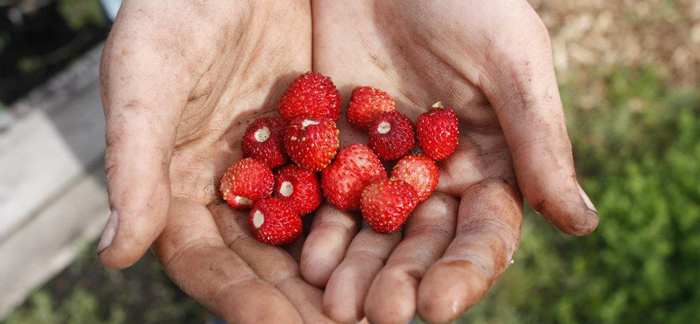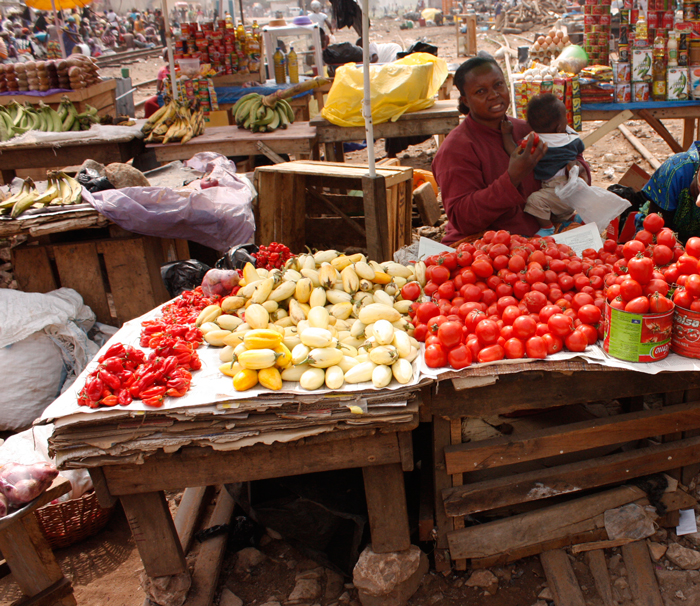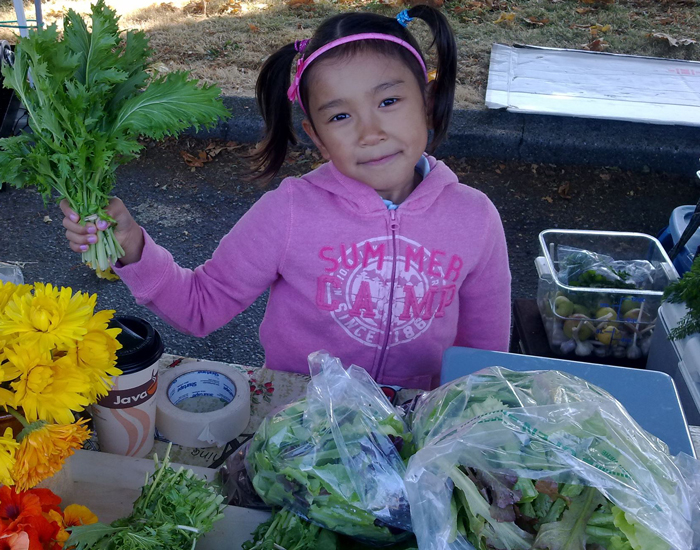Food, Farming, and Youth: How We’re Changing the Global Foodscape
 I would call myself an optimist. I’m hopeful that society can shift toward a more sustainable way of living. In my world, the means to that end is food. After all, food connects all of us. On an individual level, it nourishes us and it can heal us. On a collective level, it brings us together, whether we grow it together or share it over the dinner table. The way we produce food can also mean the difference between a thriving environment and one that is being decimated.
I would call myself an optimist. I’m hopeful that society can shift toward a more sustainable way of living. In my world, the means to that end is food. After all, food connects all of us. On an individual level, it nourishes us and it can heal us. On a collective level, it brings us together, whether we grow it together or share it over the dinner table. The way we produce food can also mean the difference between a thriving environment and one that is being decimated.
This past winter, I had an experience that not only created a sense of urgency around this issue, but also continues to permeate my day-to-day work as an organic urban farmer and youth educator.
Driven by a passion for adventure and a thirst for knowledge about food systems and agriculture around the world, I spent two months exploring various regions in West Africa. A bulk of that time was spent in Mankessim, Ghana, with Global Brigades, a student-run global health and sustainable development organization. During this time, I had an intimate view of the lives of rural Ghanaian farmers, particularly through door-to-door interviews.
The majority of farmers that I spoke to in Mankessim were mothers struggling to provide for their families. These women lack sufficient funds to employ farmhands. Most told me that if they did have more money, they would spend it on chemical herbicides and pesticides. This would presumably make the workload more manageable, though this mentality seems to be supported by government subsidies of chemical fertilizers and treated seeds.
 But what struck me most was this: when I asked the mothers if they wanted their children to become farmers, they told me, without skipping a beat, “No. We want them to move to the city to get jobs.â€
But what struck me most was this: when I asked the mothers if they wanted their children to become farmers, they told me, without skipping a beat, “No. We want them to move to the city to get jobs.â€
Take a look around Ekumfi Ekotsi, just one of many rural farming communities in Ghana, and it is clear that not many young people stick around. The majority consists of young children and middle-aged to elderly men and women. So what happens when there are no more young people in these communities to farm the land?
Does this situation sound familiar? According to Stats Canada, the average age of farmers in Canada in 2011 was 55. Based on Fraser Basin Council’s 2010 B.C. Sustainability Snapshot, more than 50 percent of farmers are age 59 and up, with less than 5 percent 34 and younger. What is more, the average yearly net loss for farmers in Canada is $20,000. One in two farmers under 55 report that off-farm employment is their main source of income.¹
What does it say about our food system when our food producers are aging farmers who are barely making enough money to get by? There is a marked disconnect between consumer and producer, and as a result, the farming profession is not highly regarded. This seems counter-intuitive to me. Instead of honoring and rewarding those who nourish us and provide us with the best medicine (food), we allow them to slip through the cracks. Consequently, individual and environmental health are at stake. I see a parallel in those rural communities in Ghana. If I was a struggling farmer, I would want my child to seek employment in the city too.
This is why we need to make a change.
Youth around the world are working together to change the way our food systems operate. In Vancouver alone there are a handful of educational programs that provide hands-on opportunities for kids to grow their own food. This past summer I ran a camp at The World in a Garden where kids learn to take responsibility for the health of themselves, their communities, and the environment, by getting their hands in the soil.
 There is also Young Agrarians, a movement whose purpose is to create a network of youth who rebuild, promote, and inspire agriculture across Canada.
There is also Young Agrarians, a movement whose purpose is to create a network of youth who rebuild, promote, and inspire agriculture across Canada.
In the Bronx, New York, Stephen Ritz teaches students with disabilities. Ritz insists that he is “not a farmer,†but he has empowered disadvantaged youth to build their skill base, make a living wage, battle obesity, and strengthen their communities, simply by growing food.
More concerned citizens are increasingly engaged in their food systems and being educated on the origins of their food. Young people are returning to the farm or creating edible landscapes out of neglected city land. I have never been so inspired by a movement, nor have I known one that addresses such a diverse palette of issues: social, cultural, nutritional, environmental. . . .
As youth, we have the power to recreate the way the farmer is conceptualized. If we can make farming “cool,†but more importantly, meaningful, in places like the Bronx, then we can do the same in places like Mankessim in Ghana.
As an optimist, urban farmer, and global citizen, I am not just hopeful, but determined, to make a transformational shift in the way we view food. As Stephen Ritz—mimicking grass-roots activist Cesar Chavez—would say, “¡SÃ, se puede!†(Yes, we can!)
¹Statistics from Young Agrarians.
Photo credits: Top, The World in a Garden; Middle, Alicia Baddorf; Bottom, The World in a Garden.

